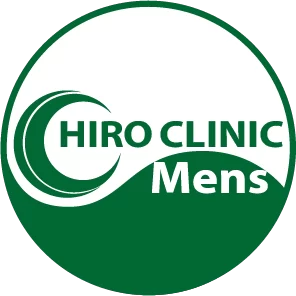この記事の概要
Caution should be exercised in the choice of pain medications after hair transplant surgery; NSAIDs may increase blood circulation, which may adversely affect the risk of bleeding and the stability of the transplanted follicle. Acetaminophen, which does not affect bleeding, is recommended as an appropriate pain reliever. To facilitate recovery, it is important to follow the physician's guidance and select medications that avoid bleeding risks.
1. Blood circulation and bleeding risk
- NSAIDs have anti-inflammatory effects as well as antiplatelet effects that thin the blood and promote blood circulation. This effect may increase the risk of bleeding after surgery. Hair transplant surgery involves tiny cuts to the scalp, so increased bleeding after surgery may have a negative impact on recovery.
2. Stability of transplanted hair follicles
- After hair transplant surgery, hair follicles are fixed in the transplanted area in a delicate state . The blood coagulation inhibitory effect of NSAIDs increases blood flow, making the transplanted hair follicles unstable, and in the worst case, may interfere with the survival of the hair roots. For this reason, it is believed that the use of NSAIDs poses a risk of reducing the success rate of transplanted hair follicles.
3. Swelling and its impact on recovery
- Inflammation and swelling after surgery are a natural part of the healing process, but the use of NSAIDs can disrupt the tissue healing process by suppressing inflammation too quickly, which may not be desirable since inflammation is part of the body’s defense mechanism and moderate inflammation helps wounds heal.
Alternative pain relievers
- Painkillers that do not affect blood clotting, such as acetaminophen, are generally recommended after hair transplant surgery to help relieve pain while minimizing the risk of bleeding.
During your recovery from surgery, it is important to follow your doctor’s instructions and avoid using medications that may increase your risk of bleeding.

Painkillers and important medical factors after hair transplant surgery
After hair transplant surgery, patients may experience pain at the surgical site. To ease the pain, painkillers are often prescribed, but the choice of painkiller should be done with care. In particular, NSAIDs (nonsteroidal anti-inflammatory drugs) are widely used as painkillers, but their use after hair transplant surgery comes with several medical concerns. This article will take a closer look at the effects of NSAIDs use after hair transplant surgery and safe alternative painkillers.
1. Blood circulation and bleeding risk
In addition to their anti-inflammatory effects, NSAIDs also have antiplatelet effects. This has the effect of suppressing platelet aggregation, which thins the blood and promotes blood circulation, but it can increase the risk of bleeding. Hair transplant surgery creates small wounds on the scalp, so increased bleeding after surgery can not only delay the recovery of the surgical site, but also increase the risk of infection.
While bleeding immediately after surgery is a natural reaction, suppression of platelet activity can make it harder for blood to clot, which can hinder the normal healing process. Using NSAIDs after a hair transplant can increase these risks, so doctors will typically prescribe other painkillers.
2. Stability of transplanted hair follicles
After surgery, the transplanted hair follicles must remain stable until they are reconnected to blood vessels. However, increased blood flow caused by the use of NSAIDs can cause the transplanted hair follicles to become unstable. This can lead to poor survival of the transplanted hair follicles, which can reduce the success rate of surgery .
Hair follicles require time and blood supply to become stable and attached. Normal blood clotting allows blood vessels in the scalp to regenerate and supply nutrients and oxygen to the hair follicles. NSAIDs can affect this process, making the hair follicles unstable and less likely to take root, so careful handling is required, especially immediately after surgery.
3. Swelling and its impact on recovery
Swelling and inflammation following surgery are natural responses to the body’s attempt to repair damage. NSAIDs have anti-inflammatory properties and can help reduce swelling, but it is important to consider how this may affect the healing process.
Inflammation is part of the healing process, and moderate inflammation is important to promote the repair of damaged tissue. Sudden suppression of inflammation can slow tissue regeneration, so it is important to choose medications that properly manage swelling and pain while supporting the body’s natural healing process.
Choosing safe alternative pain medications
For the above reasons, acetaminophen is often recommended as a painkiller after hair transplant surgery instead of NSAIDs . Acetaminophen does not affect blood clotting, so it is thought to have a low risk of bleeding and no adverse effects on hair follicle survival. Below, we will explain in detail the characteristics and benefits of acetaminophen.
Acetaminophen Features and Benefits
- Does not affect blood clotting : Acetaminophen does not affect platelets, making it safe to use with a low risk of postoperative bleeding.
- Less strain on the digestive system : Unlike NSAIDs, it puts less strain on the stomach and intestines, so it is said to be less likely to cause side effects even with long-term use.
- Moderate pain relief : Acetaminophen has little effect in suppressing inflammation, but it is effective in relieving pain. Even if the pain after surgery is severe, you can expect some effect.
Use as directed by a doctor
The choice of postoperative painkillers depends on the type of surgery, the patient’s constitution, and the condition after surgery. Following your doctor’s instructions and using painkillers appropriately is essential to a quick recovery and increase the success rate. Self-administration of NSAIDs may have a negative effect on postoperative recovery, so be sure to follow your doctor’s instructions.
Tips to speed up recovery after hair transplant surgery
- Ask for pain medication : If you are experiencing severe pain after your surgery, ask your doctor to prescribe you appropriate pain medication.
- Understand the risks of anti-inflammatory drugs : It is important to understand that the use of NSAIDs can negatively impact bleeding risk and hair follicle survival.
- Take good care of yourself during recovery : Keeping your scalp clean after surgery and following all care instructions will help ensure the stability and success of your transplanted hair follicles.
Additional precautions and supportive care
Care after hair transplant surgery is not only influenced by the choice of painkillers, but also by the way you go about your daily life and treat your scalp. Below are some tips to further promote recovery and avoid post-operative complications:
Avoid excessive exercise and scalp irritation
It is important to avoid excessive exercise and scalp irritation for a while after surgery. Increased blood flow due to exercise and unclean scalp due to sweat may increase the risk of bleeding and infection after surgery. Also, be careful not to scrub your scalp too hard when showering, and ask your doctor for advice if necessary.
Pay attention to supplements and diet
Supplements and foods that affect blood flow (e.g., vitamin E and omega-3 fatty acids) may increase your risk of bleeding. During your recovery from surgery, talk to your doctor about certain supplements and foods you should avoid, and eating a balanced diet can help improve your strength and healing.
Maintaining proper care after the surgery plays a major role in the success of your hair transplant and your recovery. Following your doctor’s advice and taking proper care will help you achieve healthier and more desirable results.
When choosing painkillers after hair transplant surgery, it is important to consider multiple medical factors, such as blood circulation, stability of transplanted hair follicles, effect on swelling, etc. To ensure a smooth recovery after surgery, be sure to choose the appropriate medication based on your doctor’s guidance.








